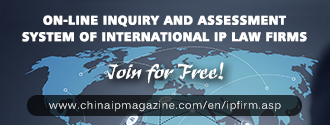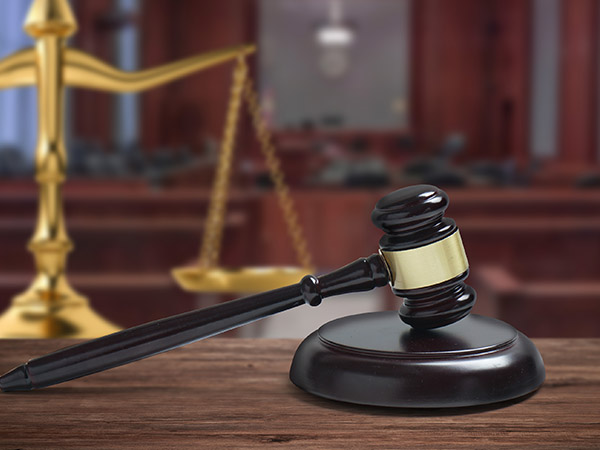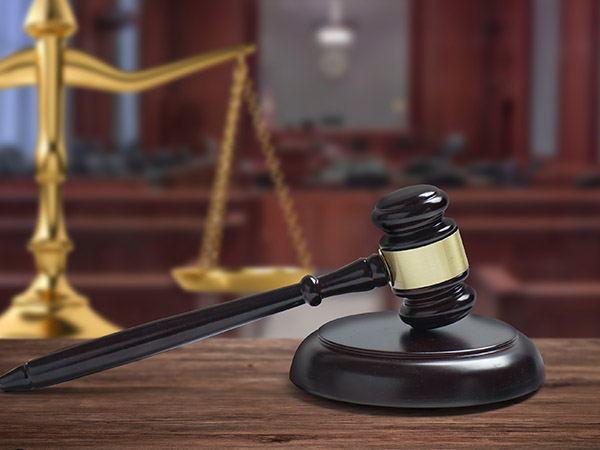Difficulties in Patent Litigation – 2019 China IP Forum of Practical Issues Held in Beijing (I)
Recently, the ongoing fourth revision of the Patent Law has thrust several issues related to the patent invalidity proceedings into the center of public opinion.
In view of such issues, the "2019 China IP Forum of Practical Issues – A Seminar on The Difficult Issues of Patent Trial Practice", hosted by China IP was held in Beijing on June 23.
The necessity and the feasibility to optimize patent invalidity proceedings
The first theme discussed in the forum was "Procedural Optimization of Patent Invalidity Litigation", Zhou Xiang, associate chief judge of the Intellectual Property Court of Supreme People's Court, pointed out in his speech that the procedural optimization of patent invalidity litigation is not only a hot topic in the fourth revision of the Patent Law in China, but also a step in line with the current development trend of the reform of the international IP governance system and institutional competition. Optimizing and perfecting the patent invalidity procedure was not only the inevitable requirement to realize strict protection of IPRs, create a good business and innovation environment, but also the inevitable choice for China to create a preferred place the international IP litigation, improve its global competitiveness, and conform to the essential historical opportunity established by the appeal mechanism of patent cases at the national level. Zhou Xiang advocated that innovation should not be in accordance with the order, and reform needs to emancipate the minds.
Cui Ning, a judge of the Intellectual Property Court of Supreme People's Court, delivered a speech on "The Necessity and Feasibility of Optimizing the Patent Invalidity Procedure". He pointed out that there is not only a macro necessity, but also a realistic urgency by amending the Patent Law to optimize the patent invalidity procedure. From a macro point of view, simplifying legal procedure and enhancing the attractiveness of the law has become a global trend, and in the face of China's national needs to promote innovation and development, and create a good business environment, optimizing the patent invalid procedure is an urgent task; From a realistic point of view, patent relief procedures in China are lengthy, complicated and even highly uncertain. Patent infringement disputes, validity disputes, ownership disputes, and other overlapping procedures delay the infringement litigations, modifications of invalid case conclusions lead to changes in the determination of infringement cases, thereby harming the legitimate rights and interests of rights holders. Such pressing issues urgently require a more effective interface between judicial and administrative aspects of patent protection at the legislative level.
In addition, from the feasibility point of view, the current amendment of the Patent Law to optimize the patent invalidity proceedings would meet no obstacles in the legislative level, and the addition of patent invalidity defense would not increase the burden on the court. Therefore, by amending the Patent Law to optimize the patent invalidity procedure, is necessary and feasible.
Zhang Guangliang, a professor at the School of Intellectual Property in the Renmin University of China, gave his opinion on patent invalidity litigation. He argued that there was not a unified law or trial standard regarding defendant's invalid defense in patent infringement litigation with poor predictability and protection. While affirming that the courts have the right to hear the defense of patent invalidity under the current legal system, Zhang Guangliang also pointed out that this kind of trial is only a trial of the defense reason, not a generally binding judgment on the validity of the patent right, so it should not be regarded as a new path of patent invalidity.
For the optimization of the patent invalidity system, Zhang Guangliang, in view of the supporting measures, put forward the proposal of constructing the scheme that first, losing party should undertake the winning party's lawyer's fee; second, establishing the procedure of regulating the abuse of patent authorization; and third, investigating the civil liability of those who bring patent litigation rashly or maliciously. He concluded that the eternal pursuit of optimizing the patent invalidity procedure should be to combine efficiency and fairness, international rules and Chinese characteristics, protect the interests of patent holders and reserve space for innovation.
Interpret the law case-by-case: practice calls for optimizing the patent invalidity procedure
Huang Rui, the senior patent consultant of Intel, delivered a keynote speech on "China's patent administrative review procedure in the perspective of multinational enterprise practice". He analyzed the patent invalidity procedures and infringement litigation proceedings of Germany, Japan, and the US, pointed out that a country's legal system would impact enterprises, especially large multinational enterprises, on their litigation destination selections. He believes that in the past few decades, the continuous reform of China's patent system has greatly improved the protection of the legitimate rights and interests of both parties in the patent litigation procedures, and believes that the reform of China's patent administrative review procedures will also have better development in the future.
Zhao Qishan, a partner of LexField Law Offices, put forward her suggestions on "Discuss the Problems in Current Patent Invalidity Procedures from a Practical Perspective". She pointed out that the invalid defense system should be fully introduced in patent infringement civil litigation, and match an independent claim interpretation procedure, to provide the parties with diversified dispute resolution approaches. By doing so, the patent administrative litigation cases could divert, to resolve the existing patent dispute problems, such as long trial cycle, inconsistent standards, imbalance between civil and administrative dual systems.
Song Xiantao, a partner of Beijing DHH Law Firm, analyzed the necessity and challenge of introducing invalid defense in patent infringement litigation. He mentioned that, due to the problems such as the separation of infringement and invalidity procedures, the separation of the right review and infringement could not guarantee the protection of the defendant's protection, there is an urgent need to introduce the invalid defense system in patent infringement litigation as soon as possible. Song also inspected the new challenges that may arise after the introduction of invalid defense, including how to balance and coordinate invalid defense, determination of equivalence, and prior art defense. After the keynote speeches, Cheng Yongshun, director of the Beijing Intellectual Property Institute, and Li Yang, a professor at the School of Law in Sun Yat-sen University, made a joint comment.
Cheng Yongshun combed through the development of patent invalidity litigation in China after the reform and opening-up, and talked about some of the problems existing in the current patent invalidity procedure in China. Li Yang pointed out that the patent invalidity defense is an essential balance of patent authorization, but is a missing link in China. For this, the judiciary authorities should take the initiative to assume the responsibility of solving the problem, and actively correct the existing system errors.











